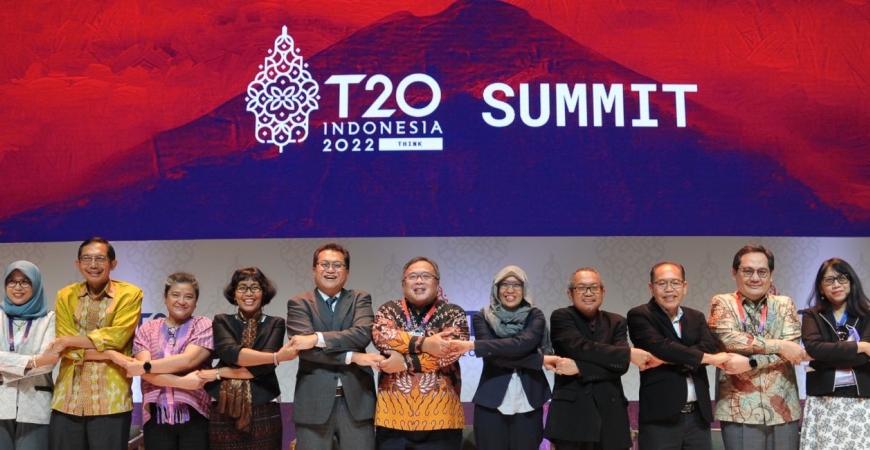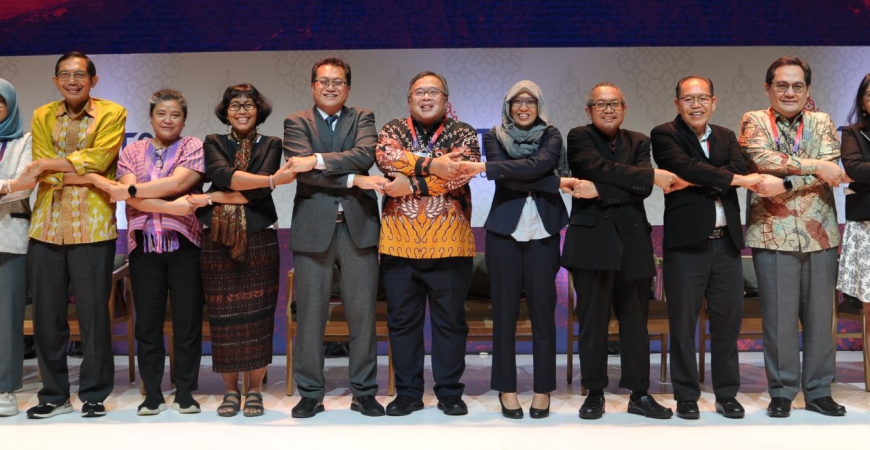SMERU participated in the 2022 G20 Indonesia Presidency forum through Think20 (T20). The T20, which brings together leading think tanks worldwide, aims to provide research-based policy recommendations to G20 member countries. It consists of nine task forces which serve as the ideas bank to address various issues discussed by the G20 countries. SMERU was especially appointed as the host institution for Task Force 5 (TF5), which focused on issues concerning inequality, human development, and welfare, from November 2021 to September 2022.
THINK 20
SMERU Leads Task Force 5 Think20
SMERU participated in the 2022 G20 Indonesia Presidency forum through Think20 (T20). The T20, which brings together leading think tanks worldwide, aims to provide research-based policy recommendations to G20 member countries. It consists of nine...
Supporting The SMERU Research Institute in Leading Task Force 5 – Think 20
As the host institution of Task Force 5, SMERU is responsible for leading the selection of policy brief proposals while ensuring the alignment of the briefs with the G20 and T20 agenda.
As the host institution of Task Force 5, SMERU is responsible for leading the selection of policy brief proposals while ensuring the alignment of the briefs with the G20 and T20 agenda.
The primary aim of this parallel session is to inform core leaders within the G20 of the importance of redefining our knowledge regarding inequality, human capital, and well-being issues in order to fully capture how the pandemic has affected our lives. This dialogue will highlight research and policy work on inequality, human capital, and well-being presented by researchers and scientists based in the G20 nations.
This collaboration event between T20 Task Force 5 in collaboration with the Faculty of Economics and Business Universitas Indonesia and the Oxford Poverty and Human Development Initiative (OPHI) aims to bring together experts and academics in the field of multidimensional poverty, inequality and wellbeing, to find solutions to the challenges faced by G20 nations due to the COVID-19 pandemic.
The integration of technology in education has been catalyzed by school closures due to the coronavirus disease 2019 (COVID-19) pandemic. However, significant gaps exist between stakeholders, policymakers, and practitioners with regard to technological capabilities and their knowledge of how technology may bring positive changes, e.g., help reduce teacher workload, promote differential teaching, and support efficient school management and teacher professional development.




